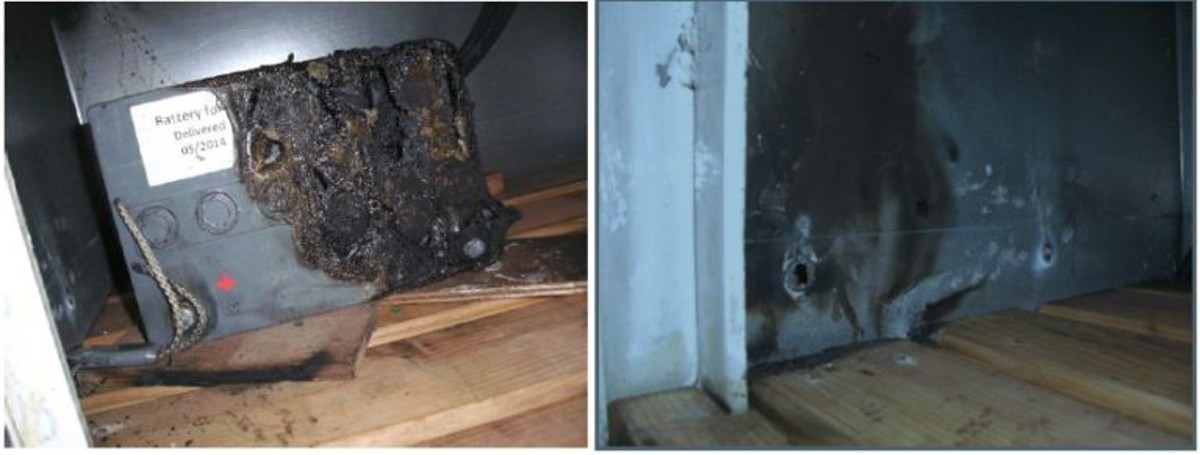Battery fire
- Safety Flash
- Published on 25 May 2017
- Generated on 25 February 2026
- IMCA SF 12/17
- 2 minute read
Jump to:
The Marine Safety Forum (MSF) reports an incident in which, during the early hours of the morning during a period of adverse weather, the fire alarm in the vessel battery locker was activated.
What happened?
The crew mustered and the fire team assembled and upon investigation it was discovered that there was a small flame and sparks being emitted from a spare battery that was stored in the battery locker on the top shelf.

What were the causes of the incident?
The battery had been delivered during the previous port call and stored within the battery locker. Unfortunately, it had been placed on a storage shelf with no attempt to secure it in place. During a period of heavy weather, the battery tipped onto its side and slid against the steel lining of the bulkhead.
As the battery terminals were not covered, this caused the battery to short circuit and led to it overheating. Once the battery had reached ignition temperature, the casing melted, setting off the fire alarm.
Lessons learned
- Everything loose on a vessel should be secured in place to prevent movement. Assume nothing; secure everything.
- All spare batteries should have the terminals covered with insulating material to prevent accidental shorting.
The incident is available on the MSF website.
Related safety flashes
-
IMCA SF 09/15
23 June 2015
-
IMCA SF 17/09
1 December 2009
IMCA Safety Flashes summarise key safety matters and incidents, allowing lessons to be more easily learnt for the benefit of the entire offshore industry.
The effectiveness of the IMCA Safety Flash system depends on the industry sharing information and so avoiding repeat incidents. Incidents are classified according to IOGP's Life Saving Rules.
All information is anonymised or sanitised, as appropriate, and warnings for graphic content included where possible.
IMCA makes every effort to ensure both the accuracy and reliability of the information shared, but is not be liable for any guidance and/or recommendation and/or statement herein contained.
The information contained in this document does not fulfil or replace any individual's or Member's legal, regulatory or other duties or obligations in respect of their operations. Individuals and Members remain solely responsible for the safe, lawful and proper conduct of their operations.
Share your safety incidents with IMCA online. Sign-up to receive Safety Flashes straight to your email.